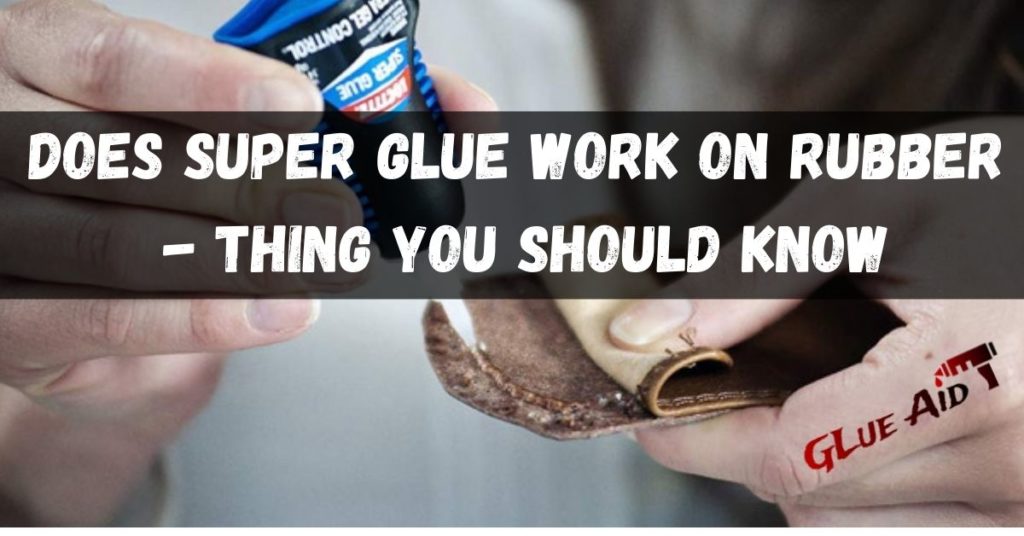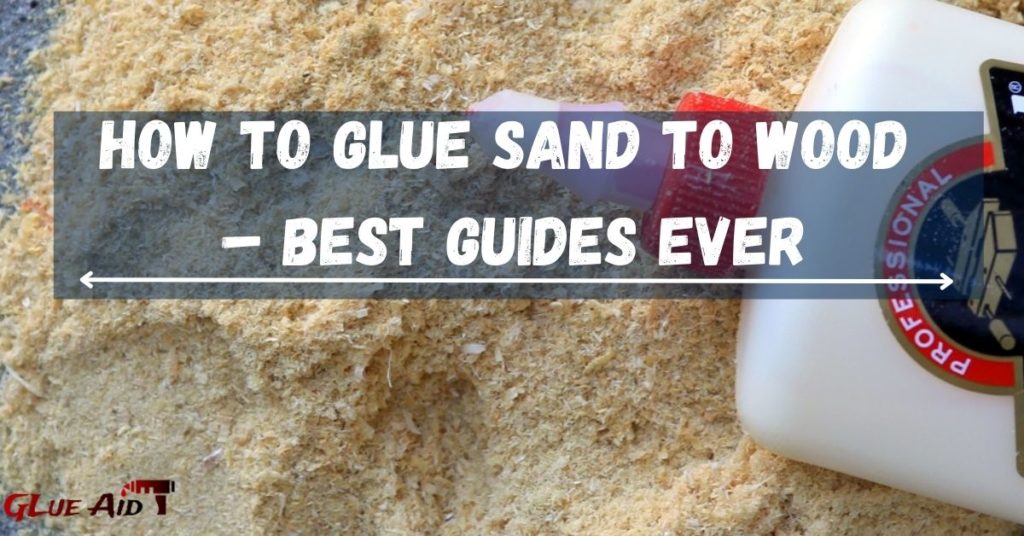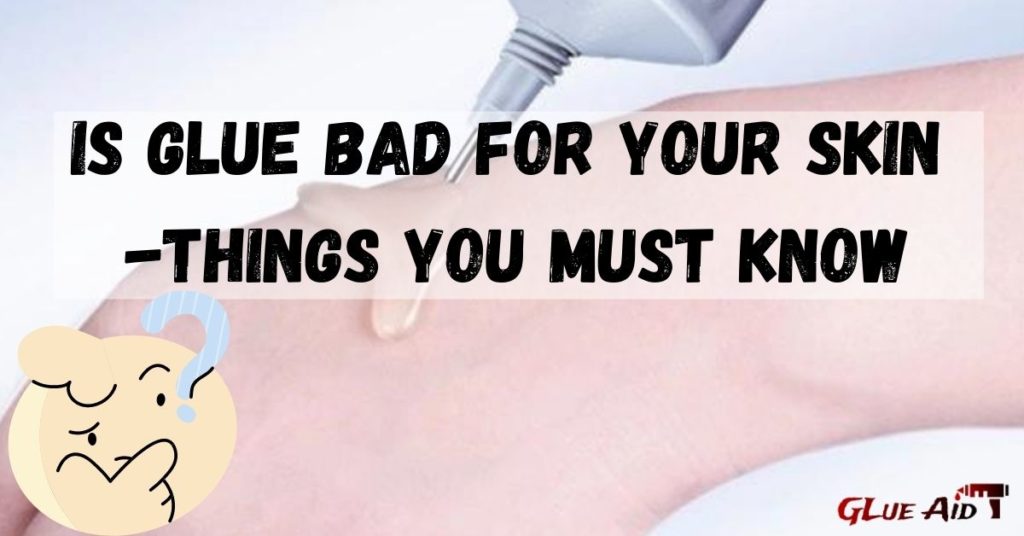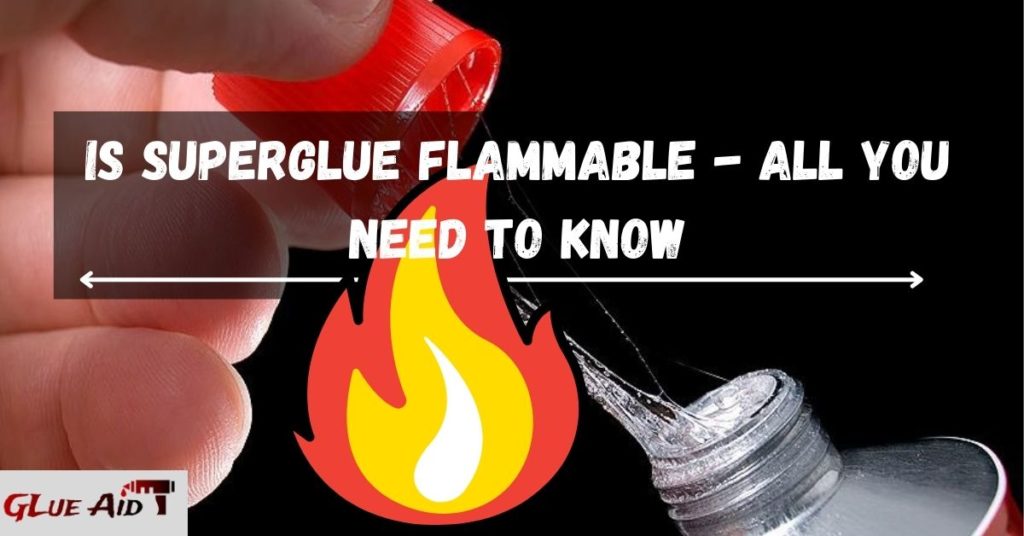Everyone knows superglue and its effectiveness at adhering to different substances together. However, the problem is that there are some things that superglue can’t work on. For instance, does super glue work on rubber?
There are many myths about what super glue can or cannot do. But is it true that the sticky substance can fasten rubber? Yes, it can. But it depends on the type of glue you are using and the rubber.
Let’s have a more in-depth look at this.
Table of Contents
Can Superglue Stick on Rubber?
You can use superglue to adhere rubber together. However, there are some caveats since the superglue won’t be as efficient as you want it to be sometimes. If, for example, you want to fix a leakage in a rubber tire, superglue would work fine.
There are instances where mechanics have used superglue to fix the leakages on car tires with no issues at all. But now, not all types of rubber are the same. Some rubbers wouldn’t hold that long when you fix them with superglue.
Take the example of a rubber band. Since it stretches, you probably can’t fix it for long with superglue. The rate at which the superglue elongates isn’t the same as that of the rubber band. So, you’re likely to face disappointment when you fix it with the glue.
There are specific aspects that affect the ability of superglue to bond rubber.
What Factors Affect the Ability of Superglue to Bond Rubber?
1. The type of Rubber
As we have already mentioned, not all types of rubber are the same. We, therefore, wouldn’t expect them to have the same results with the different cyanoacrylate glues. That’s why one of the first steps before using super glue to bond rubber is knowing the type of rubber.
The types of rubber vary from Nitrile rubber that you would commonly find on hoses and gaskets, polyurethane rubber, silicone rubber, and natural rubber. All those rubber types would react differently to the superglue once you use it.
Always understand the rubber you are working with before proceeding.
2. The Type of Superglue
There are so many types of superglues, and it isn’t surprising that they vary in their effectiveness on rubber. The best superglues to use on rubber are Krazyglue and the original super glue.
Although all superglues are cyanoacrylate derivatives, their effectiveness will vary depending on the type of rubber. Knowing the kind of superglue that can work with the rubber you have will make your work far much easier in the long run.
Don’t just pick any superglue because you saw how effective it was on other substances. It might fail to work as effectively as you want it to on the rubber of your choice. No need to get the suitable material for the wrong substance, right?
3. Other Prevailing Factors
By prevailing factors, we refer to things such as the properties of the rubber. Did you know that if you use superglue on wet rubber, it could reduce its effectiveness?
Also, did you know that a mixture of superglue and baking soda would make it a stringer adhesive? These are only a few things that you can take to ensure superglue holds rubber together effectively.
They will have the same effect on how superglue holds the rubber together with the other aspects. There could also be another aspect, such as dirt on the rubber, that makes it difficult for the superglue to work effectively.
Now that we have seen the different aspects that affect the effectiveness of superglue on rubber let’s see how to prepare rubber before gluing.
Preparing Rubber Before Gluing
To prevent the above prevailing factors from affecting the ability of the superglue to work on the rubber, you need to prepare it for adhesion. Fortunately, that isn’t a difficult task.
All you need is to perform a process called solvent degrease. This is a process you use to remove any surface dirt on the rubber before using superglue. It helps boost the adhesion power of the superglue.
To perform a solvent degreasing, you’ll need a simple solvent such as isopropanol or acetone. You, however, need to be careful with the type of solvent you use for different rubber types.
That’s because some rubber might dissolve once it gets in contact with acetone. The best alternative here is isopropanol which is usually a bit milder.
Is Superglue That Effective on Rubber?
Krazy glue and the original super glue are handy adhesives when working with rubber. However, other rubber types can be ‘difficult’ for them. EPDM rubber, for instance, can pose a significant problem for cyanoacrylate-based glues.
EPDM rubber is a synthetic type of rubber with widespread application in the building and motor industry. It is tough and durable, which is why it is popular for roofing houses.
Another one that could pose issues for superglue is natural rubber silicone rubber. Superglue can’t work that well on natural rubber and EPDM rubber. Superglue would slide off the surfaces when you use them on these types of rubber.
So, what are we saying? Yes, we agree superglue can work for rubber but not all types of rubber. Some are pretty stubborn and would only waste your time without positive results.
Fortunately, there are other adhesives you can work with. Let’s look at the different glues you can consider for the problematic kinds of rubber.
The Best Adhesive Types for Rubber
Yes, we know superglue can work on rubber, but what are the other glues to consider? Like any other product in the market, the glue has so many variants each with varying degrees of adhesion.
So, here are the best glues to consider when working with rubber.
Silicone-Based Adhesives
Besides cyanoacrylates or superglues, you can consider silicone-based adhesives to bond rubber. They are the better option if you’re working with silicone rubber, for which superglue might have a few shortcomings.
Unlike other glues, it will resist any changes from chemicals and exposure to water. That makes it the ideal option for silicone-based rubbers.
2-part Structural Acrylics
These glues work perfectly for plastics. How does that relate to rubber, though? One plastic component is polypropylene which is also a component of EPDM rubber. This type of rubber is one of the most challenging rubbers to use with an adhesive.
However, it wouldn’t be much of a nuisance to Two-part structural acrylics that are best for plastic and difficult rubber. Their main advantage over other cyanoacrylates is that they don’t cure that fast.
That means you can spread them over a large surface without the worry that they could cure suddenly and cause problems.
FAQs About Does Super Glue Work on Rubber
Does super glue react with rubber?
Super glue is typically not reactive with rubber, but it should be noted that it can sometimes become reactive with certain types of rubber. This is usually due to the presence of chlorine in the rubber compounds. Depending on the type of rubber used, these reactions may lead to increased viscosity, decreased flexibility, and/or other negative effects on the material properties.
What is the best super glue for rubber?
The best glue for rubber is cyanoacrylate. It is also sometimes called instant glue. It comes in two varieties- thick and thin. The thicker version is more suitable for larger surfaces, like car tires, because it won’t drip as much. The thinner variety is better for smaller things like sneakers or handbags because of its faster drying time.
Does super glue Work on silicone rubber?
Super glue can be used to bond silicone rubber, but it is usually not recommended. The adhesive will interact with the material in an undesirable way. For instance, the silicone rubber’s surface may become glossy and the glue’s consistency may change when exposed to ultraviolet light.
Does rubber cement work on rubber?
Rubber cement is a type of glue that is used when gluing two pieces of rubber together. Rubber cement does not work on rubber because rubber is not plastic.
What can you glue rubber with?
Many types of adhesives can be used to glue rubber together, such as a cyanoacrylate adhesive. The most important consideration when choosing glue is that it cannot dissolve or melt the material being glued.
Final Thoughts
So, does super glue work on rubber? Of course, it does. But there’s a catch; it depends on the type of rubber and other factors like the surface dirt on the rubber. We hope we have answered your question regarding the effectiveness of superglue on rubber.
If you find that superglue doesn’t work that well, consider the alternatives we have provided in the article.
Relevant Resources:
- Why is Super Glue Age Restricted? Know the Reason Behind This
- How to Fix a Hole in an Air Mattress With Super Glue
- Is Super Glue Conductive
- Can You Super Glue Wires Together – Best Guides Ever
- Is Super glue Waterproof
- Can You Use Super Glue for Fake Nails
- How Long Does Super Glue Take to Dry
- Is Superglue Flammable
- What Temperature Does Super Glue Melt




